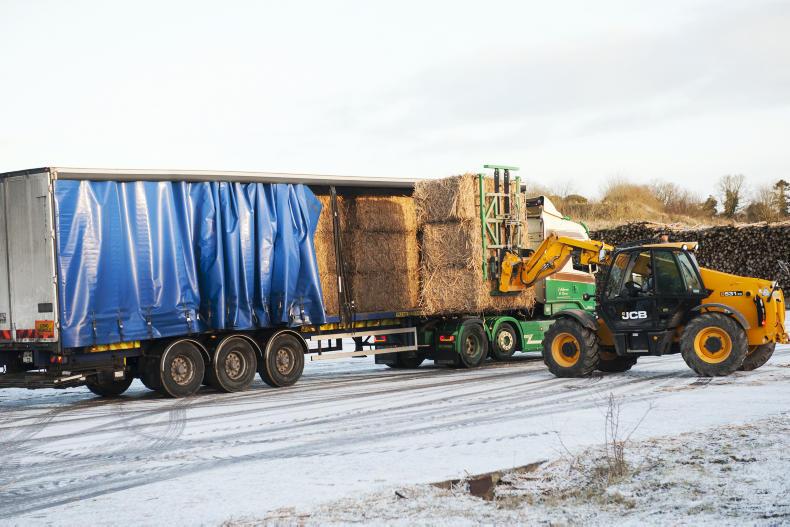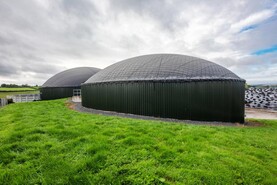Quinns of Baltinglass is considering getting involved in anaerobic digestion (AD) to produce renewable gas, said Dave Tyrrell, who has been developing the Wicklow-based company’s energy business – but the company would go ahead only if there are sufficient incentives.
“The Government must show they are serious about AD and the development of an AD unit must be economically viable before Quinns pursues this option,” Tyrrell said.
“We have a large customer base of farmers we could contract to grow forage for an AD.” These may include grass silage, maize and miscanthus. Quinns is starting a trial to use the leafy material from miscanthus, harvested in October, instead of leaving it to dry over the winter to harvest it as biomass fuel in the spring.
“We need to see how the crop grows the following year if it has been cut green,” Tyrrell explained.
This, combined with the new support scheme for renewable heat, could revive interest in miscanthus – a crop supported by Quinns through the years but without commercial success so far. “We haven’t had markets for miscanthus before, but the SSRH should improve that,” Tyrrell said.
Quinns would become part of a consortium with other partners to develop the AD plant. While the SSRH includes limited support for the technology when the gas is used on site for small-scale heating, Tyrrell said Quinns’ interest was to produce electricity or gas for the national grid.
A separate support scheme for renewable electricity is due to open this year and gas grid injection may be included in the SSRH at a later stage.
Read more
Energy crops and wood fuels cheaper than oil
Farmers should form co-ops to sell biomass
Calls for energy crops grant to be restored
Quinns of Baltinglass is considering getting involved in anaerobic digestion (AD) to produce renewable gas, said Dave Tyrrell, who has been developing the Wicklow-based company’s energy business – but the company would go ahead only if there are sufficient incentives.
“The Government must show they are serious about AD and the development of an AD unit must be economically viable before Quinns pursues this option,” Tyrrell said.
“We have a large customer base of farmers we could contract to grow forage for an AD.” These may include grass silage, maize and miscanthus. Quinns is starting a trial to use the leafy material from miscanthus, harvested in October, instead of leaving it to dry over the winter to harvest it as biomass fuel in the spring.
“We need to see how the crop grows the following year if it has been cut green,” Tyrrell explained.
This, combined with the new support scheme for renewable heat, could revive interest in miscanthus – a crop supported by Quinns through the years but without commercial success so far. “We haven’t had markets for miscanthus before, but the SSRH should improve that,” Tyrrell said.
Quinns would become part of a consortium with other partners to develop the AD plant. While the SSRH includes limited support for the technology when the gas is used on site for small-scale heating, Tyrrell said Quinns’ interest was to produce electricity or gas for the national grid.
A separate support scheme for renewable electricity is due to open this year and gas grid injection may be included in the SSRH at a later stage.
Read more
Energy crops and wood fuels cheaper than oil
Farmers should form co-ops to sell biomass
Calls for energy crops grant to be restored






 This is a subscriber-only article
This is a subscriber-only article









SHARING OPTIONS: